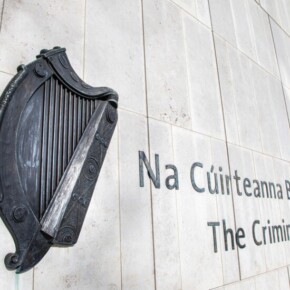Construction worker who was experiencing psychosis fired shots outside his home
Dublin People 20 Nov 2024
By Eimear Dodd
A construction worker was experiencing psychosis when he fired two shots into the air outside his home, a court has heard.
Dublin Circuit Criminal Court was told that the garda armed support unit was called to an address in Finglas on August 16, 2022 after reports that two shots had been discharged from a handgun.
Robert Carroll (39) retreated into his home after firing two shots from a revolver into the air.
He was experiencing psychosis, not compliant with his medication and had been taking cocaine at the time.
Several houses were evacuated and the road closed off, while a garda negotiator was also called to assist.
Carroll voluntarily left the house after 75 minutes, during which time his behaviour was described as erratic and volatile and he also threw items from upstairs windows.
Carroll, of Dunsink Avenue, Finglas, Dublin, pleaded guilty to possession of a firearm in suspicious circumstances contrary to section 27a of the Firearms Act.
He further pleaded guilty to possession of ammunition in suspicious circumstances.
Detective Garda Robert Diffley yesterday told Antonia Boyle BL, prosecuting, that gardai met Carroll’s mother when they arrived. She told them her son was suffering from psychosis and was off his medication.
The road was closed off and a number of neighbouring houses evacuated. Attempts were made by gardai to speak to Carroll, but his responses were incoherent. A national garda negotiator was brought in to try to engage with him.
Carroll voluntarily came to the front door, where he was arrested under the Mental Health Act and taken to hospital.
A medical report stated Carroll was experiencing a transient episode of psychosis with a background of cocaine use.
Three days later, Carroll was released from hospital and formally arrested by gardai.
He was interviewed but made no admissions.
When gardai searched the house, they found five discharged bullet casings, a Smith and Weston revolver, one live round and €10,050 cash.
Carroll’s DNA was identified on a swab taken from the handgun.
He has 21 previous convictions, including one for the unauthorised possession of a stun gun, dating back to 2010.
He has not come to recent garda attention.
Det Gda Diffley agreed with Derek Cooney BL, defending, that Carroll’s most recent previous conviction dates from 2019 and is minor in nature.
It was further accepted that while Carroll made no admissions during interview, he was co-operative, easy to deal with and has limited memory of that night.
The witness accepted that Carroll was walking barefoot outside his home when he fired the two shots into the air, was not wearing a top and had cuts to his body.
Det Gda Diffley agreed with John Burns SC, also defending, that Carroll did not point the handgun at anyone or any property.
A number of reports were handed to the court.
Mr Burns said Carroll is apologetic and embarrassed by his behaviour.
His client has a history of mental health issues, and was recently diagnosed with paranoid psychosis disorder.
Carroll has a long work history in construction and set up his own business.
Mr Burns outlined that Carroll moved to Russia with his then-partner in 2019.
While there, Carroll began to experience certain mental health difficulties and felt the Russians were following him.
“No one believed him, but it felt very real to him,” Mr Burns told the court, adding that his client thought he was going to be kidnapped or killed.
He acknowledged that Carroll’s use of illicit substances did not help his mental health, but his client has taken steps to address this.
Carroll returned to Ireland later in 2019 and his mental health continued to deteriorate.
Mr Burns said Carroll believed his phone was bugged, his social media had been hacked and was afraid he would be kidnapped.
Carroll was in contact with certain people due to his use of cocaine and decided to buy the handgun and six rounds of ammunition, counsel said.
Mr Burns said when his client is compliant with his medication, he represents no threat.
Carroll has taken proactive steps to minimise his risk of future re-offending and has been made aware of the need to avoid illicit substances and remain compliant with his medication, counsel added.
Carroll has two sons and strong family support.
Mr Burns submitted that his client’s moral culpability was reduced due to his mental health difficulties, but Carroll is aware he is the “author of his own misfortune to some extent”.
Carroll will also find custody more challenging due to his mental health.
Having heard the facts, Judge Sarah Berkeley remanded Carroll into custody and adjourned the case to November 26 for finalisation.











